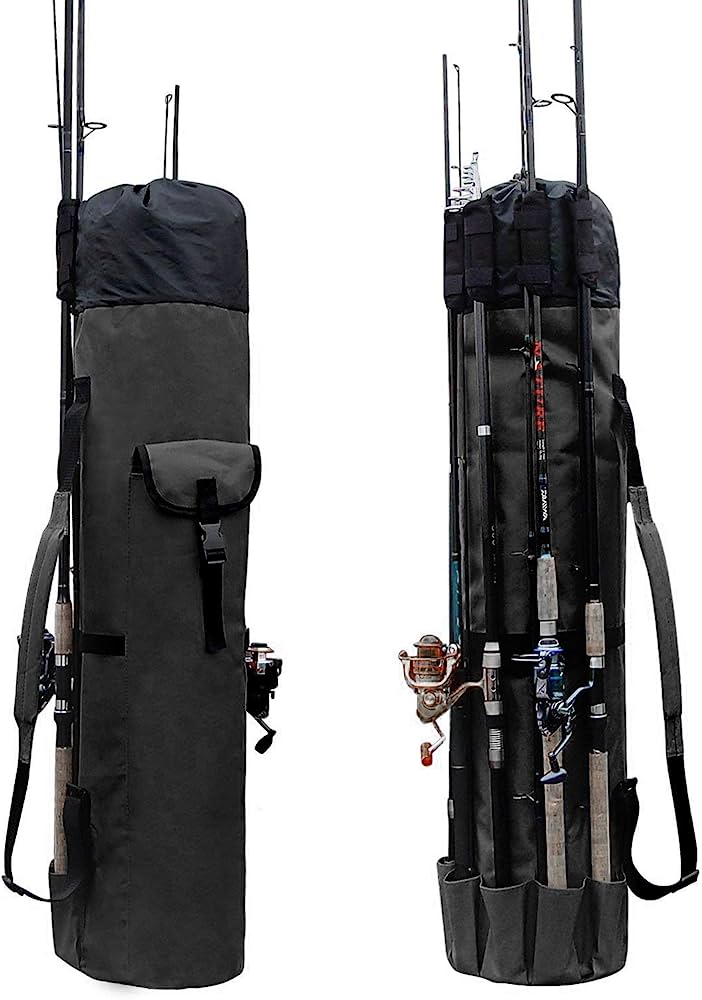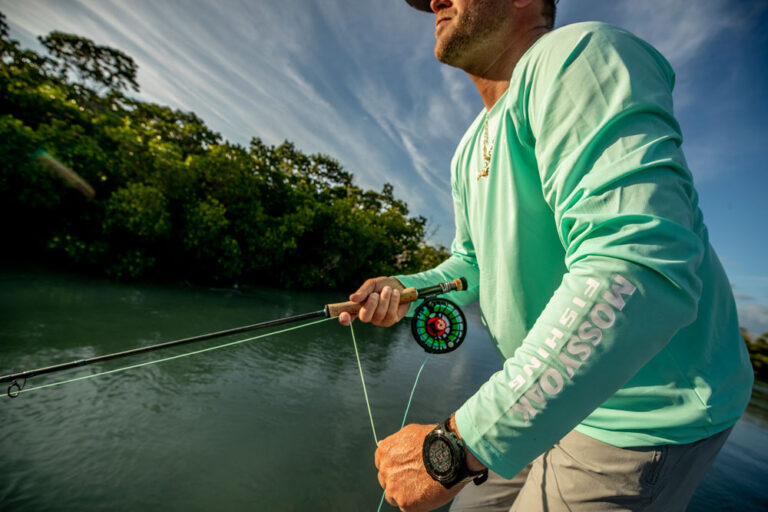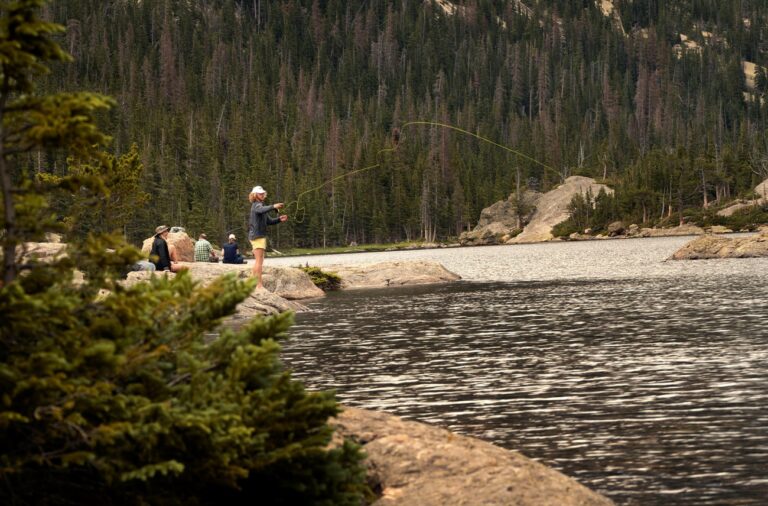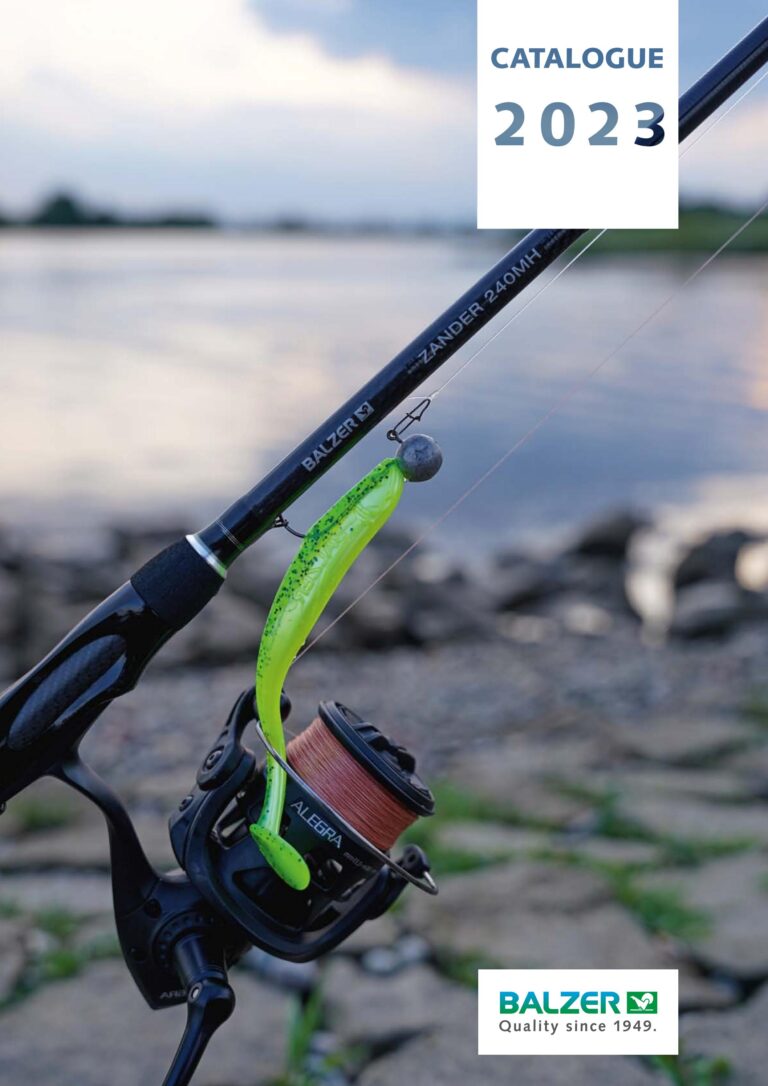Fishing is not currently recognized as an olympic sport. However, there are many other exciting sports that are included in the olympic games.
The olympic games is a global sporting event that brings together athletes from different countries to compete in various disciplines. From swimming to athletics, gymnastics to cycling, and even niche sports like table tennis and shooting, the olympics showcases an array of sports.
While fishing is a popular recreational activity enjoyed by millions of people worldwide, it has yet to be recognized as an olympic sport. The international olympic committee (ioc) determines the sports included in the olympic games based on certain criteria, such as global participation, governing body recognition, and adherence to the olympic values. Despite not being an olympic sport, fishing enthusiasts can still embrace their passion through other international fishing competitions, fishing championships, and local tournaments.

Credit: www.kagstv.com
The History Of Fishing In Olympic Games
Fishing’S Journey To The Olympics
From its humble beginnings as a survival technique, fishing has come a long way to become a recognized sport worldwide. Over the years, it has undergone several transformations, ultimately earning its place in the olympic games. Let’s take a closer look at the history of fishing in the olympics.
- Early origins: Fishing has been practiced for centuries, initially as a means of sustenance. As societies evolved, fishing became more organized, resulting in the emergence of competitive fishing events. These events were popular among fishing enthusiasts and eventually caught the attention of olympic officials.
- Inclusion in past olympic games: Fishing made its olympic debut in 1900 during the paris games. The discipline included both freshwater and saltwater angling, where competitors strived to catch the most fish within a given time frame. The event added excitement to the games and showcased the skills and techniques of anglers from around the world.
- Reasons for removal from the olympic program: Despite its early inclusion, fishing’s journey in the olympics faced some obstacles. While it remained on the program for several games, it was eventually excluded. Some of the reasons behind this decision were:
- Lack of universal regulations: Fishing, unlike other olympic sports, lacked consistent rules and regulations across countries. This created challenges in establishing a level playing field and hindered the sport’s progression within the olympic framework.
- Complexity of scoring: Determining a clear and objective scoring system for fishing proved to be quite challenging. Factors such as the weight, size, and species of fish caught, as well as angling techniques used, added complexity to the scoring process.
- Limited spectator appeal: Compared to more mainstream olympic sports, fishing failed to capture the attention of a broader audience. Its slower pace and focus on precision and patience may have contributed to its limited appeal as a spectator sport.
While fishing is no longer part of the olympic games, its history in the event serves as a reminder of its significance as a sport. Fishing continues to thrive worldwide, with various competitions and championships dedicated to the skillful pursuit of fish.
So, while olympic anglers may not cast their lines in the games anymore, the legacy of fishing in the olympics lives on.
The Case For Fishing As An Olympic Sport
Fishing, a beloved pastime for many, has gained significant attention as a potential addition to the olympic games. While some may dismiss it as a leisurely activity, there are compelling arguments in favor of fishing being recognized as an olympic sport.
In this section, we will explore the popularity of fishing worldwide, the existence of competitive fishing events and organizations, as well as the physical and mental aspects of fishing that classify it as a sport.
The Popularity Of Fishing Worldwide
- Fishing is a globally cherished activity, drawing millions of enthusiasts from all corners of the world.
- Countries such as japan, the united states, and australia have vast fishing communities, with deeply rooted traditions and a strong passion for the sport.
- Participation in fishing transcends age, gender, and socioeconomic boundaries, making it an inclusive and diverse pursuit.
Competitive Fishing Events And Organizations
- Numerous professional fishing tournaments are held globally, showcasing the competitive nature of the sport.
- Organizations like the international game fish association (igfa) and the professional anglers association (paa) exist to promote and govern competitive fishing.
- These tournaments and organizations emphasize fair play, technical skills, and sportsmanship, aligning with the principles of the olympic games.
The Physical And Mental Aspects Of Fishing As A Sport
- Fishing requires a combination of physical dexterity and mental acuity. Anglers must possess skills such as casting, reeling, and maneuvering a boat, all while dealing with variable conditions.
- Concentration, patience, and strategic thinking are crucial attributes for successful fishing, fostering mental strength and resilience.
- The physical nature of fishing, including long hours of standing, casting, and battling with a fish, entails significant exertion and endurance.
To truly encompass the diverse array of sports practiced worldwide, the inclusion of fishing in the olympic games would be a momentous step. It recognizes the popularity of fishing, the existence of competitive events and organizations, and the physical and mental demands placed on anglers.
By celebrating the inclusiveness and skill required in the sport of fishing, the olympics would be enriched, appealing to a wider audience and upholding the spirit of embracing athletic diversity.
Challenges And Obstacles To Fishing Becoming An Olympic Sport
Is Fishing An Olympic Sport
Fishing, a favored pastime for many, has long been regarded as a classic recreational activity. However, despite its widespread popularity, fishing has yet to achieve the status of an olympic sport. In this section, we will delve into the challenges and obstacles standing in the way of fishing becoming an olympic sport.
The Perception Of Fishing As A Recreational Activity
- Fishing is predominantly seen as a leisurely pursuit, where individuals engage in the activity for relaxation and enjoyment rather than competitive purposes.
- The perception of fishing as solely a recreational activity poses challenges for its inclusion in the olympic games, where the focus is primarily on showcasing athletic excellence and competition.
Lack Of An International Governing Body
- Unlike many olympic sports, fishing lacks a unified international governing body that can represent and advocate for the sport’s inclusion in the games.
- A central governing body is essential for the establishment of rules, regulations, and standards that are necessary for the fair and competitive execution of the sport at an international level.
Competitive Challenges And Standardization
- One of the primary obstacles to fishing becoming an olympic sport is the difficulty in standardizing the competitive format.
- Fishing encompasses various practices and techniques, including freshwater, saltwater, and fly fishing, each requiring different skills and strategies.
- Developing a standardized set of rules to ensure fair competition across different fishing disciplines presents a significant challenge.
These challenges and obstacles, including the perception of fishing as a recreational activity, the lack of an international governing body, and the issues surrounding competitive challenges and standardization, hinder the path to fishing’s inclusion in the olympic games. While it may continue to captivate enthusiasts as a recreational pursuit, fishing’s journey to becoming an olympic sport remains uncertain.
The Potential Benefits Of Fishing As An Olympic Sport
Increased Global Exposure And Participation
Fishing, as an olympic sport, has the potential to bring numerous benefits not only to the athletes involved but also to the global community. Here are some key points to consider:
- By including fishing as an olympic sport, it would gain significant global exposure. The olympic games are followed by millions of people from all around the world. This increased visibility would help raise awareness about the sport and attract more individuals to participate in fishing-related activities.
- Hosting fishing competitions during the olympics would provide a platform for showcasing different fishing techniques, equipment, and strategies from various countries. This would promote cultural exchange and foster a deeper understanding of fishing traditions and practices worldwide.
- Including fishing as an olympic sport would encourage more individuals to take up the sport. Aspiring athletes and recreational anglers would be motivated by the opportunity to compete at the highest level, leading to a significant increase in participation globally. This would help popularize fishing as a sport and attract new enthusiasts who may not have otherwise considered it.
- The inclusion of fishing as an olympic sport would also lead to the development of new training facilities, specialized coaching programs, and improved infrastructure to support the growth of the sport. This investment in fishing infrastructure would have a positive ripple effect, benefiting not only the athletes but also the surrounding communities and economies.
Economic Impact On Host Cities And Countries
The addition of fishing as an olympic sport would have a significant economic impact on the host cities and countries. Here are some key points to consider:
- The hosting of fishing competitions during the olympics would attract thousands of visitors from around the world. These tourists would spend money on accommodations, food, transportation, and other services, stimulating the local economy.
- The influx of visitors and spectators for fishing events would also create job opportunities in various sectors, such as hospitality, tourism, and event management. This would provide a boost to the local workforce and contribute to job creation.
- The hosting of the olympic fishing events would require the construction and maintenance of world-class fishing venues and infrastructure. This investment would not only benefit the immediate host city but also the entire region, as these facilities could be utilized for future fishing tournaments and recreational purposes.
- The increased interest in fishing generated by the olympics would have a positive impact on the fishing industry. It would lead to an increase in the sales of fishing equipment, gear, and accessories. This growth would benefit local manufacturers, retailers, and suppliers, stimulating the economy further.
Promotion Of Conservation Efforts And Sustainable Practices
One of the significant advantages of including fishing as an olympic sport is the promotion of conservation efforts and sustainable practices. Here are some key points to consider:
- The olympic platform would provide an opportunity to shine a spotlight on the importance of responsible fishing and environmental conservation. Athletes and officials can advocate for sustainable fishing practices, such as catch-and-release, protecting endangered species, and minimizing the impact on fragile ecosystems.
- The olympic fishing events would adhere to strict regulations and guidelines to ensure the preservation of fish populations and their habitats. This commitment to conservation would set an example for anglers worldwide, emphasizing the need to fish responsibly and take active measures to safeguard the environment.
- By incorporating education and awareness programs into the olympic fishing events, participants and spectators can learn about the importance of sustainable fishing practices and the impact of their actions on the marine ecosystem. This knowledge can be shared and implemented beyond the olympic games, creating a lasting positive influence.
- The inclusion of fishing as an olympic sport would also encourage research and development in sustainable fishing technologies. Innovations in gear, equipment, and fishing methods could arise, aiming to minimize bycatch, reduce waste, and enhance the overall sustainability of the sport.
The inclusion of fishing as an olympic sport could bring about numerous benefits including increased global exposure and participation, an economic boost to host cities and countries, and the promotion of conservation efforts and sustainable fishing practices. Not only would this provide a platform for athletes to showcase their skills, but it would also contribute to the overall growth and development of the sport on a global scale.
The Future Outlook For Fishing In The Olympics
Fishing is a beloved pastime and a unique sport that has captivated the hearts of millions around the world. While it may not be currently featured in the olympic games, there has been significant interest and efforts to reinstate fishing as an official olympic sport.
In this section, we will explore the future outlook for fishing in the olympics, including the efforts to reinstate it, potential advancements in competitive fishing, and predictions for the future.
Efforts To Reinstate Fishing In The Olympic Program
- The international angling federation (fips) has been actively advocating for the inclusion of fishing in the olympic games.
- Fips has submitted proposals and engaged in discussions with the international olympic committee (ioc) to showcase the skill and excitement of competitive fishing on the olympic stage.
- One of the main challenges in reinstating fishing is determining a fair and standardized format that can be implemented across different locations and fishing conditions.
- Collaborative efforts are underway between fips and the ioc to address these challenges and find a viable solution for the inclusion of fishing as an olympic sport.
Potential Advancements And Innovations In Competitive Fishing
- Technological advancements are expected to revolutionize the sport of fishing, providing new opportunities for competitiveness in an olympic setting.
- Innovations such as high-tech fishing gear, smart tracking devices, and real-time data analysis can enhance the spectator experience and ensure fair competition.
- The incorporation of artificial intelligence (ai) and machine learning into fishing equipment may assist athletes in analyzing underwater conditions and improving their strategies.
- The development of eco-friendly fishing practices and sustainable fishing techniques can further elevate the sport and align it with olympic values.
Predictions And Possibilities For The Future
- If fishing is successfully reinstated in the olympic program, it has the potential to attract a wider global audience and increase participation in the sport.
- The inclusion of fishing in the olympics could encourage more countries to invest in professional fishing training programs and support the growth of young talent.
- The establishment of fishing as an olympic sport may also lead to increased sponsorship opportunities and greater financial support for athletes.
- There is a possibility that specialized fishing events, such as fly fishing or deep-sea fishing, could be introduced to cater to different disciplines within the sport.
While fishing is not currently part of the olympic games, efforts are being made to reinstate it as an official olympic sport. With the potential for advancements in technology and innovations in competitive fishing, the future of fishing in the olympics holds great promise.
The inclusion of fishing in the olympic program would not only showcase the skill and excitement of the sport but also provide new opportunities for athletes and enthusiasts alike. So let’s keep our lines cast and our hopes high for the future of fishing in the olympics.
Conclusion
The question of whether fishing should be recognized as an olympic sport has garnered much debate and discussion. While some argue that fishing possesses the necessary attributes and skills to be deemed an olympic event, there are key factors that present significant challenges.
With its reliance on nature and unpredictable conditions, fishing may not be conducive to the structured and regulated nature of the olympics. Furthermore, the subjective nature of judging catches and determining winners may raise questions of fairness and impartiality. Despite these obstacles, proponents of fishing as an olympic sport believe it could promote the sport on a global scale, inspire aspiring anglers, and highlight the importance of protecting our natural resources.
Ultimately, the international olympic committee will have the final say, considering various factors and weighing the arguments presented by both sides. Whether fishing becomes an olympic sport or remains a beloved pastime, its impact on individuals and communities will continue to be profound.






